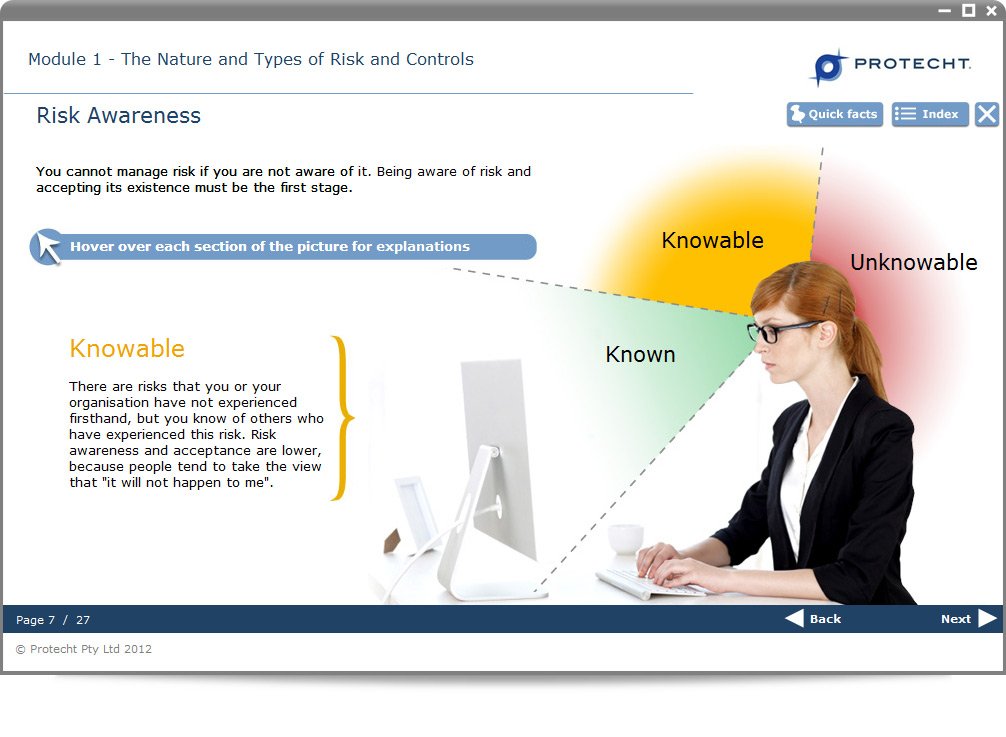Whistleblowing
Course Description
Would you feel confident speaking up if you encountered misconduct in your organisation?
Whistleblowing is the act of exposing misconduct or an improper state of affairs within an organisation. Research shows that businesses that receive and investigate whistleblower reports show a significant and lasting decline in misconduct incidents. But often employees are reluctant to report misconduct they notice at work because of fear that the organisation or another employee will take adverse action against them for speaking up.
Organisations must build trust with their employees (and other third parties) to encourage them to make reports. This means creating a workplace culture of whistleblowing, and having clear and dedicated systems in place to ensure whistleblowers are protected and aware of their rights.
This courses uses real-life examples and scenarios to guide individuals on what to do when a reportable situation arises, what to expect from the reporting process and what protection they can expect. Advanced modules cover how to institute a whistleblowing culture from the top down.
Who should do this training?
This course contains a general module suitable for employees at all levels and in all facets of your organisation, as well as module for managers on whistleblowing obligations at an organisational level.
Course Outline
- Module 1: Introduction to whistleblowing
- Module 2: Whistleblower protections (for managers and other senior employees)









